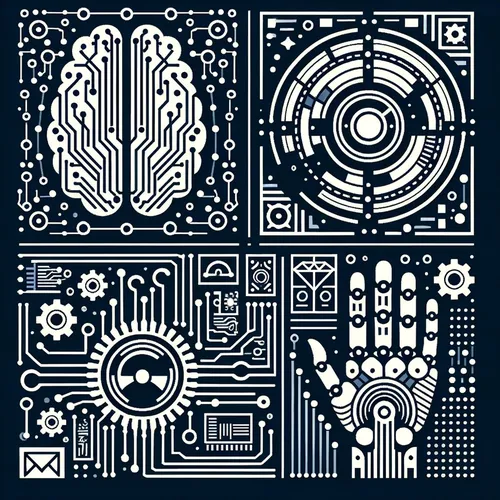AI & Robots Collide: 2025's Trillion-Dollar Love Story
- Author
- Quiet. Please
- Published
- Sat 02 Aug 2025
- Episode Link
- https://www.spreaker.com/episode/ai-robots-collide-2025-s-trillion-dollar-love-story--67227275
This is you Emerging Technology Trends: AI, Robotics & Digital Innovation podcast.
Artificial intelligence, robotics, and digital innovation are converging in 2025 to set the pace for unprecedented transformation across industries worldwide. According to recent data from StartUs Insights and Nasdaq, the global artificial intelligence in robotics market is expected to reach nearly 23.1 billion dollars in 2025, with projections to soar to more than 64 billion dollars by 2029, reflecting an annual growth well above 25 percent. Meanwhile, the overall robotics industry is on track to more than double from over 71 billion dollars in 2025 to more than 150 billion dollars by 2030, driven by cross-sector adoption and the rise of next-gen autonomous systems that promise vastly improved efficiency and operational scale.
In current news, Shopify and OpenAI have announced integrating advanced artificial intelligence-powered shopping capabilities directly inside ChatGPT, hinting at a future of seamless e-commerce driven by conversational bots. Amazon’s Project Kuiper has launched its first batch of production satellites to deliver global broadband internet, signaling rapid momentum in satellite-enabled connected devices and edge AI. In software, both Microsoft and Alphabet report that a large percentage of their internal code is now generated by artificial intelligence, underlining the transformative impact of generative models on development workflows.
Research and development in quantum computing and the Internet of Things is accelerating, with major investments targeting the fusion of real-time data, smart automation, and AI-powered analytics. The surge is shaping intelligent robotics, as more than 69,000 professionals are active in the field and patent activity grows at a triple-digit rate led by China and the United States. Industrial robotics remain the bedrock of industry transformation, with automotive, electronics, and logistics emerging as primary beneficiaries. Notably, collaborative robots—designed to safely work beside humans—are expanding rapidly, offering businesses powerful tools to boost productivity and safety.
On the ethical and regulatory front, the fast adoption of advanced robotics and artificial intelligence is prompting calls for new frameworks to safeguard transparency, prevent bias, and ensure privacy. Integration challenges persist: organizations must invest in reskilling, robust cybersecurity, and interoperable systems. For those looking to act, the advice is clear: prioritize workforce upskilling in digital and AI fluency, explore strategic partnerships, and stay alert to regulatory changes and security best practices.
Looking forward, the convergence of AI, robotics, and quantum computing will keep pushing boundaries, enabling smarter infrastructure, more personalized experiences, and resilient industries shaped by continuous learning. Thank you for tuning in. Come back next week for more, and remember this has been a Quiet Please production. For more, check out Quiet Please dot AI.
For more http://www.quietplease.ai
Get the best deals https://amzn.to/3ODvOta
